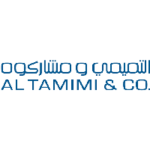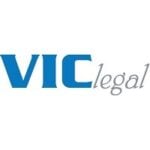-
What are the relevant government entities relating to immigration in your jurisdiction?
In Greece, immigration matters are managed by several government entities and public authorities. The main bodies involved include:
Ministry of Migration and Asylum: The Ministry of Migration and Asylum is responsible for developing, coordinating, and implementing national policy on migration, international protection, and integration. It oversees the legal and administrative framework for third-country nationals residing in Greece.
Asylum Service: Under the Ministry of Migration and Asylum, the Asylum Service receives and processes applications for international protection according to national and EU legislation. It reviews asylum claims and issues decisions.
Reception and Identification Service: This authority manages the initial reception, identification, registration, and referral of third-country nationals and asylum seekers entering Greece, particularly at border entry points.
Directorates of Aliens and Immigration (under the Decentralized Administrations): These regional administrative bodies handle the issuance, renewal, and management of residence permits for third-country nationals legally residing in Greece.
Hellenic Police: The Aliens Departments of the Hellenic Police enforce immigration control, monitor residence legality, implement administrative detention, and carry out return and deportation procedures where necessary.
Ministry of Foreign Affairs – Consular Authorities: Greek embassies and consulates abroad are responsible for issuing entry visas to third-country nationals and facilitating pre-entry procedures in coordination with national immigration authorities.
Cooperating International and Intergovernmental Organizations: International organizations such as the International Organization for Migration (IOM) and the United Nations High Commissioner for Refugees (UNHCR) cooperate with national authorities to implement programs related to refugee protection, integration, voluntary returns, and emergency response.
-
What are the options available for sponsor-based employment in your jurisdiction and timelines involved in securing a work permit?
Greek immigration laws allow third-country nationals to work in Greece via sponsor-based schemes requiring a Greek employer. More specifically:
Residence permits for the provision of dependent employment (Category “E”):
- Residence permit for the purpose of highly skilled employment in accordance with Directive (EU) 2021/1883 of the European Parliament and of the Council on the conditions of entry and residence of third-country nationals for the purpose of highly qualified employment and repealing Council Directive 2009/50/EC (L 382) (residence permit type “E.1”),
- Residence permit under the intra-corporate transfer scheme in accordance with Directive 2014/66/EU of the European Parliament and of the Council on the conditions of entry and residence of third-country nationals in the framework of an intra-corporate transfer (L 157), transposed into Greek law by Law 4540/2018 (residence permit type “E.2”),
- Residence permit for employment for special purposes (residence permit type “E.3”),
- Residence permit for employment following a call for employment (sponsorship-based employment) (residence permit type “E.4”),
- Right of residence and employment granted to holders of a national visa for the purpose of seasonal work (residence title type “E.5”),
- Residence permit for seasonal workers (residence permit type “E.6”).
Processing times for category “E” residence permits depend on permit type, application location, authority workload, and file completeness. Some permits, such as special purpose permits, may be issued within a month after biometric data submission, while others can take six months.
-
What are the primary options available for unsponsored work and investment in your jurisdiction?
Law 5038/2023 allows certain categories of third-country nationals to live, work, or invest in Greece without needing sponsorship or employer support.
3.1. Residence permits for self-employment and entrepreneurship
- Residence permit for business activity: Allows non-EU nationals to establish or invest in Greek companies and live in Greece based on their business.
- Residence permit for investors (Golden Visa): For non-EU nationals investing in real estate or other approved assets; permits residence but not work.
3.2. Residence permits for digital nomads and remote work
Permits are granted to third-country nationals engaged in remote work for foreign employers or operating as freelancers, without the necessity of a domestic employer. Eligibility for this permit is contingent upon demonstrating adequate financial resources and presenting valid employment or service contracts with foreign entities.
3.3 Residence permits for scientists, researchers, and artists without sponsorship
Scientists, researchers, and artists can obtain special permits to live and work in Greece independently, without traditional sponsorship.
3.4. Residence Permit for Investors in Securities or Bank Deposits
This option applies to individuals who invest in Greek government bonds, shares of real estate investment companies, or bank deposits within Greece. The required minimum investment depends on the chosen investment type, and the residence permit is issued for five years with an option to renew.
-
What are the requirements for becoming a sponsor of employment-based migrants and what are the role and reporting duties of sponsors?
A. Requirements for Sponsors:
- The sponsor can be an individual or legal entity lawfully operating in Greece and authorized to hire foreign workers.
- The sponsor must have adequate financial and administrative resources to employ the migrant worker.
- The sponsor must meet all employer obligations (taxes, social security) and have no serious labor or immigration convictions.
- The sponsor must apply for a work permit or participate in the invitation process as required.
B. Role of Sponsors:
- Provide lawful employment as per the contract.
- Comply with labour and social security laws.
- Assist with work and residence permit applications.
- Cooperate with authorities to ensure legal employment.
C. Reporting Obligations:
- Notify authorities of employment contract termination or changes.
- Provide data and documents for employment verification when requested.
- Keep records on foreign worker employment.
-
Are applications filed electronically, or paper base? Is a physical visa/work permit document issued or is an electronic approval issued?
Work permit applications are submitted electronically via the official online platform of the Greek Ministry of Migration and Asylum. Following the initial review of the submitted documentation, and provided that all required documents are in order, a temporary certificate is issued to the applicant.
Within a reasonable timeframe from the date of submission, the applicant is required to present their biometric data to the competent authority in Greece.
Upon completion of the biometric data submission, and within a reasonable period — which may vary depending on the specific category of the residence permit — the final work permit is issued. This permit grants the applicant the legal right to reside and work in Greece.
Visa applications are submitted in person, by appointment, at the competent Greek Embassy or Consulate in the applicant’s place of residence.
-
Is an in-person attendance/interview required as part of the visa/work permit application process? Is an individual required to enrol their biometrics (digital photo, fingerprint scan) as part of the visa/work permit process?
In-person attendance is required as part of the visa and work permit application procedures.
For visa applications, applicants must attend an in-person appointment at their local Greek Embassy or Consulate to provide a digital photo and fingerprints; an interview may also be required.
For work permit applications, after submitting documents electronically, applicants must appear in Greece to give biometric data, which is required to receive the final permit card.
-
What persons qualify as dependants? Can dependants work based on their dependant visa status? Are there any restrictions?
According to the Greek immigration law, the following individuals generally qualify as dependants of a principal applicant (e.g., a foreign national holding a residence/work permit in Greece):
- Spouse or registered partner
- Unmarried minor children of the applicant and/or their spouse/partner
- In certain cases, dependent adult children (e.g., with disabilities or under guardianship), subject to specific conditions and documentation
- Dependants may be granted a residence permit for family reunification purposes. As a general rule, dependants are not automatically granted the right to work in Greece based solely on their status as family members. However, there are exceptions:
- Spouses of certain categories of residence permit holders (e.g., EU Blue Card holders, researchers, highly skilled workers) may be eligible to work, depending on the type of residence permit and national regulations.
- Minor dependants are permitted to attend school but not to work.
Restrictions may apply based on the purpose of the principal applicant’s residence permit, and any right to employment for dependants must be explicitly stated on the dependant’s residence permit.
For any work-related rights, dependants may be required to apply for a separate work permit or change the type of their residence permit accordingly.
-
What is the general time frame and processes for obtaining permanent residence and citizenship for sponsored and unsponsored business-related immigration?
In Greece, the timeframe and procedures for obtaining permanent residence and citizenship for business-related immigration depend on whether the individual is entering through a sponsored route (such as employment by a Greek company) or an unsponsored route (such as through investment or entrepreneurship).
For unsponsored business-related immigration, individuals who invest in real estate in Greece with a minimum value of €800,000 are eligible for a Golden Visa. This program grants a five-year residence permit that is renewable indefinitely, provided the investment is maintained. There is no requirement for the investor to reside in Greece. However, in order to qualify for long-term residence or citizenship, actual continuous residence in Greece is necessary. After five years of legal and continuous residence, the individual may apply for long-term residence status.
For sponsored business-related immigration, such as employment in a Greek company or establishment of a business activity in Greece, a residence and work permit is initially issued. After five consecutive years of legal and uninterrupted residence, the individual may become eligible for long-term residence status.
Greek citizenship may be acquired through the process of naturalization. This generally requires seven years of legal and continuous residence in Greece. However, this period is reduced to three years for spouses of Greek citizens, parents of Greek children, or recognized refugees. To qualify for citizenship, applicants must hold a valid residence permit, pass exams that assess their knowledge of the Greek language, history, and culture, and demonstrate integration into Greek society and economic life. A clean criminal record is also required.
In summary, while permanent residence through investment may be granted from the outset, long-term residence and citizenship require a longer period of physical presence in Greece and fulfillment of specific legal, linguistic, and social integration requirements.
-
What productive type activities can a business visitor undertake and for how long?
Business visitors may engage in productive activities, such as meetings, negotiations, market research, seminars, conferences, and training sessions, without a work permit, as long as these do not produce direct output for a Greek company.
Activities that are directly involved in the production or delivery of goods or services for a Greek company, or that involve creating or modifying products, require a work permit.
Business visitors to Greece may stay up to 90 days within a 180-day period, following Schengen visa rules. Typically, visits are shorter to meet the non-productive output requirement. While business activities are allowed, visitors must avoid any work that produces outcomes for a Greek company without a permit.
-
Can remote work be carried out from your country?
Remote work is possible from Greece if legal and tax requirements are met. Employees must follow rules on employment, social insurance, and taxes. If a work permit or visa is needed, remote work must comply with its conditions.
-
Are there any productive work / revenue generating activities that can be carried out as a visitor and without the need for a work permit? If so, what activities and for how long?
Visitors without a work permit cannot take part in any productive or paid work.
Some non-productive and unpaid activities are allowed, as listed below:
A. Business and Professional Activities
Participation in business meetings and negotiations
Attendance at conferences, exhibitions, and professional events
Conducting market research or evaluating business opportunities
Consulting discussions without providing paid services
B. Sports Activities
Participation in sports events or tournaments without remuneration or a professional relationship
Attendance at sports seminars, training sessions, or presentations
Participation in promotional activities or events as an amateur athlete
C. Duration of Stay
The stay as a visitor in Greece and the Schengen area is limited to up to 90 days within a 180-day period.
D. Restrictions and Legal Consequences
Any activity generating income or involving professional employment without the necessary work permit is illegal. Violations may result in fines, entry bans, deportation, or other legal penalties. For any paid or professional activity, whether in the business or sports sector, the appropriate work permit or residence visa is required. It is recommended to consult the competent authorities for accurate and up-to-date information before undertaking any activity.
-
Is there a remote work or nomad visa category in your jurisdiction? If not, how likely is it that this will be implemented in future?
Greece launched a digital nomad visa in 2021 for non-EU nationals who work remotely. The visa offers a 12-month residency permit with renewal options and is designed to attract digital professionals. Given positive feedback and global trends, Greece may continue or expand this program to welcome more remote workers.
-
How easy is it to switch visa categories/jobs/employer from within country? And/or if made redundant, can the individual regularise their stay in another capacity and what is the timeframe allowable?
Change of visa, work, or employer category within the country :under Law 5038/2023, applicants lawfully in Greece may apply to change their residence or work status if they meet the requirements of the new category. Applications must be made before the current permit expires.
Procedure in case of redundancy:
In the event of redundancy or termination of an employment contract, individuals are permitted a period—typically up to 60 days—to seek new employment or apply for changes to their residence and work status. During this time, their stay is considered lawful as long as the required procedures have been started.
Regularizing of stay: You can change your status (such as from work to study or family reunification) if you meet the requirements. Apply before your current permit expires.
Criminal and administrative consequences:
Remaining after the regularization deadline without a valid permit makes a foreign national irregular and risks fines, entry bans, and deportation.
-
What common issues or concerns may arise for employers under business immigration in your jurisdiction?
The immigration process in Greece, while systematic, presents several considerations for employers. Here are some key issues and concerns:
- Work and Residence Permits: Employers must ensure that foreign employees obtain the necessary work and residence permits before commencing work in Greece. The process involves multiple stages, including application submission, document verification, and issuance of permits, which can be time-consuming. Failure to comply can result in penalties and legal complications.
- Notification Requirements: Employers are required to notify the relevant Greek authorities when hiring foreign workers. This includes submitting detailed employment contracts and proof of qualifications. Non-compliance with notification requirements can lead to fines and potential legal action.
- Social Security and Tax Compliance: Employers must register foreign employees with the Greek social security system and ensure appropriate tax withholding and contributions. Greece has specific regulations regarding social security for foreign workers, and non-compliance can result in substantial fines.
- Employment Contracts: Contracts must be compliant with Greek labor laws, specifying terms of employment, including duration, salary, and job responsibilities. Any discrepancies or non-compliance with local labor regulations can lead to legal disputes.
- Business Visitor Activities: The activities allowed during a business visit are restricted. Business visitors are typically permitted to attend meetings, conferences, and training sessions but cannot engage in productive work. Employers must ensure that the activities of business visitors do not violate these restrictions to avoid fines, deportation, or entry bans.
- Housing and Relocation: Employers often need to assist with housing and relocation services for foreign employees. Finding suitable accommodation and navigating local real estate regulations can be challenging. Employers should also be aware of cultural differences and provide support to ease the transition for foreign employees.
- Health and Safety Regulations: Ensuring compliance with Greek health and safety regulations in the workplace is essential. Employers must provide adequate training and resources to maintain a safe working environment for foreign employees.
- Legal Representation and Support: Engaging legal representation familiar with Greek immigration and labor laws is advisable. This helps in navigating the complex regulatory environment and ensures compliance with all legal requirements.
Failure to address these concerns adequately can lead to significant legal and financial repercussions for employers, including fines, legal disputes, and reputational damage. It is crucial for employers to stay informed about the latest regulatory changes and seek professional advice when necessary.
-
Is there a fast track process / certification that business can obtain to expedite visa / permit processing?
In Greece, there is no official general fast-track procedure for the issuance of visas or work permits that applies to all businesses. However, in certain cases and special categories—such as the European Blue Card or for highly skilled professionals—applications may be processed more quickly or given priority, under specific conditions.
Additionally, some companies that have long-standing cooperation with the competent authorities or meet specific criteria may benefit from more streamlined procedures or priority in the examination of applications. However, this is not established as an official fast-track program for all cases.
To expedite the process, it is recommended to work with specialized legal advisors and ensure that the application file is carefully prepared to avoid delays due to omissions or errors.
-
What are the recent trends, both political and social that have impacted (or are anticipated to impact) your jurisdiction with regard to immigration policy and law?
Greece has experienced a convergence of political, demographic, and economic factors that have significantly influenced its immigration policy—particularly in the corporate domain.
Demographic Decline and Labor Market Gaps
Greece is grappling with a pronounced demographic downturn, with its population falling below 10 million for the first time in decades. This has prompted the government to adopt a more open stance toward labor migration. In 2024 alone, over 200,000 work visas were issued, reflecting a strategic pivot to attract foreign talent to address acute labor shortages in key sectors such as construction, hospitality, and agriculture.
Strengthening of Corporate Immigration Channels
To facilitate the entry of skilled professionals, the Greek government has reinforced the Fast Track Scheme for certified companies. Eligibility criteria include a minimum workforce threshold, financial solvency, and a clean compliance record. This framework enables qualified employers to expedite the hiring of third-country nationals, thereby supporting business continuity and growth.
Regulatory Tightening and Employer Accountability
While access to foreign labor has been liberalized, regulatory scrutiny has intensified. Authorities have increased audits focusing on social security compliance, lawful employment practices, and adherence to health and safety standards. This dual approach—liberalization coupled with enforcement—aims to balance economic needs with legal integrity .
-
How has the COVID-19 pandemic shaped current immigration landscape in your jurisdiction?
The COVID-19 pandemic significantly affected the immigration landscape in Greece, bringing changes both to entry and residence procedures, as well as to the management of migration flows.
During the period of restrictive measures, many procedures were transferred to digital platforms in order to cope with the situation, accelerating, in the long term, the digitalization of immigration services.
The experience of the pandemic highlighted the need for flexible and digital procedures in the field of immigration, as well as the importance of strengthening social protection for migrants during times of crisis.
-
Are there any new and / or anticipated changes impacting immigration law and / or policy in your jurisdiction?
Yes, there have been recent and anticipated changes impacting immigration law and policy in Greece. One of the most significant developments is the implementation of Law 5038/2023, which introduces major reforms to the Greek Migration Code. This law aims to simplify and modernize the residence permit framework, reduce bureaucratic burdens, and enhance digital procedures for both applicants and authorities.
Additionally, Greece has updated the Golden Visa program by increasing the minimum investment thresholds in specific regions (e.g., Attica, Thessaloniki, Mykonos, and Santorini) to €800,000, in an effort to balance real estate market pressures. There are also stricter timelines for completing investments and submitting the required documentation, aimed at improving transparency and efficiency.
Further digitalization of immigration processes is anticipated, including the expansion of online platforms for application submissions, biometric appointments, and residence permit renewals. These measures are part of a broader national strategy to streamline migration services and align with EU practices.
Overall, Greece is actively reforming its immigration policy to respond to economic needs, labor shortages, and increased demand for investor and skilled migration pathways.
-
How do you see technology developing and evolving to support immigration process in the future?
The future of corporate immigration is poised to be significantly shaped by the integration of advanced technologies aimed at streamlining procedures and enhancing transparency. The Greek government is actively pursuing digital transformation initiatives, including the digitization of immigration services to reduce bureaucratic delays and improve accessibility for applicants. Key developments include the deployment of artificial intelligence (AI) and machine learning (ML) to automate routine tasks such as document verification and data analysis, thereby accelerating processing times and minimizing human error. Additionally, blockchain technology is being explored for its potential to securely manage sensitive immigration data and facilitate inter-agency cooperation. Biometric systems—such as facial recognition and fingerprint scanning—are also expected to become more prevalent, enhancing the accuracy and security of identity verification. These innovations collectively aim to create a more efficient, secure, and applicant-friendly immigration system that aligns with Greece’s broader digital governance strategy.
-
What are the Right to Work requirements in your jurisdiction?
Employers must verify employees’ right to work in Greece. Non-EU/EEA nationals need a valid work and residence permit; EU/EEA nationals require only a registration certificate. Hiring someone without proper authorization can result in fines of EUR 1,500–10,500 per employee, possible criminal charges, and imprisonment for employers. Unauthorized employees risk fines, expulsion, and re-entry bans, with the ban’s length depending on the case. Employers should keep accurate records and regularly audit compliance, as violations carry serious financial, legal, and reputational consequences.
-
What are the types of civil and criminal penalties employers may face for non-compliance with immigration rules i.e. employing an individual who does not have the Right to Work?
Employers who do not adhere to immigration regulations and employ individuals lacking legal authorization to work may incur both civil and criminal penalties. The consequences for non-compliance are as follows:
(a) Civil Penalties: Employers may be liable for substantial fines ranging from EUR 500 to EUR 10,000 per unauthorized employee, depending on the gravity and frequency of the infraction. These penalties serve to discourage the employment of individuals without proper work authorization and to promote compliance with immigration laws.
(b) Criminal Penalties: In addition to monetary fines, employers may face criminal prosecution. Conviction for knowingly employing individuals without the right to work can result in imprisonment for up to two years, with sentencing dependent on the specific circumstances and whether the violation is a repeat offense.
(c) Administrative Actions: Authorities may implement further administrative measures, including the suspension or revocation of business licenses, which can have a profound effect on the employer’s operations.
(d) Employee Consequences: Employees found working without appropriate authorization may be subject to deportation, as well as a ban on re-entry to Greece and the Schengen Area for up to five years. These measures are designed to prevent future violations and maintain the integrity of the immigration system.
It is essential that employers in Greece strictly comply with immigration requirements to avoid these serious penalties and uphold their legal obligations.
-
Are there labour market testing requirements in your jurisdiction and if so, what do they involve?
Labour market testing (LMT) requirements may exist (depending on the case). As an example, employers seeking to hire third-country nationals may be required to demonstrate that the position in question cannot be filled by a Greek or EU citizen. This involves a formal process where the employer must first advertise the job vacancy through designated national employment platforms, such as OAED (the Greek Manpower Employment Organisation), and allow a reasonable period for local candidates to apply.
-
Are there quota requirements, restrictions or a cap on the numbers of foreign nationals hired per company in your jurisdiction?
The employment of third-country nationals by employers is subject to specific limits and quotas, which are determined based on the annual assessment of labor market needs and applicable legislation.
Annual quotas by region and specialty:
The demand for employing third-country nationals is periodically set through JMDs that specify a fixed number of positions per geographic area and sector. These quotas reflect the needs of the Greek labor market and aim to protect the domestic workforce.
Assessment of employer’s need and prevention of substitution of local labor:
Applications to hire foreign workers must be accompanied by documentation proving that there are no available Greek or EU/EEA nationals for the specific position and that hiring the foreign national will not replace domestic employees.Exemptions from quotas:
Certain categories of foreign nationals, such as holders of the EU Blue Card, highly skilled workers, and intra-company transferees (ICT), are exempt from these quotas or subject to a special regulatory regime.
Ongoing revision and control:
Quotas are regularly revised considering labor market changes and demographic factors. Exceeding the established limits requires special justification and approval by the competent authorities. Non-compliance may result in administrative and criminal penalties.
Employers must closely monitor relevant legislative developments and cooperate with legal advisors to properly and lawfully manage the recruitment of foreign nationals, ensuring full compliance and avoidance of penalties.
-
Are there any exit procedures in your jurisdiction, if an individual is departing permanently?
Yes, in Greece, there are certain exit procedures for individuals who are permanently departing the country, particularly in the case of third-country nationals. The main procedures include:
- Notification of the Authorities
The foreign national must notify the competent Migration Authority or the Regional Authority (Decentralized Administration) of their intention to permanently leave Greece.
If they hold a residence permit, they may be required to return their residence card. - Tax Clearance
The individual must settle all tax obligations, close their Tax Identification Number (AFM), and file a departure declaration at the local tax office (D.O.Y.).
This also includes submitting a final tax return and settling any outstanding tax liabilities. - Social Security
If the foreign national was insured (e.g., with EFKA), they may request a certificate of insurance history or transfer their social security rights through bilateral agreements (where applicable). - Cancellation of Registrations/Contracts
It is advisable to terminate rental agreements, utility contracts (electricity, water, telephone), and close bank accounts. - Re-entry Ban (if applicable)
In cases where the individual departs after staying without a valid residence title (e.g., overstaying a visa or permit), a re-entry ban into the Schengen Area may be imposed for a certain period of time.
There is no formal “exit” requirement for EU/EEA citizens, but it is recommended that they follow the steps above to avoid potential complications in the future.
- Notification of the Authorities
-
Are there any requirements for medical certificates or vaccinations for your jurisdiction?
No, there are no specific requirements for medical certificates or vaccinations for global mobility purposes in Greece.
-
Are there any language requirements for your jurisdiction?
In Greece, language requirements depend on the purpose of stay and the type of residence permit being requested. Knowledge of the Greek language is primarily required in cases such as naturalization for acquiring Greek citizenship, where the applicant must demonstrate sufficient proficiency in Greek—at least at B1 level—through examinations conducted by the Ministry of Interior. A similar requirement applies to the granting of a long-term resident permit, where knowledge of Greek at A2 level is required, along with a basic understanding of Greek history and culture.
In contrast, for categories such as the EU Blue Card or residence permits for dependent employment, there is no explicit requirement for knowledge of the Greek language. Nevertheless, knowledge of Greek is useful for social integration, daily life, and professional advancement. In certain professions, such as healthcare, education, or roles involving direct interaction with the public, Greek language proficiency may be required by the employer or stipulated by specific regulations.
For short-term stays, tourist visas, or intra-company transfers, there is no mandatory Greek language requirement. Citizens of the EU/EEA are also not subject to language requirements for residing or working in Greece. However, the Greek state periodically offers free or subsidized Greek language courses for migrants as part of broader social integration initiatives.
-
What are the government costs associated with a typical employment based visa?
The government costs associated with a standard employment-based visa comprise several distinct fees. The following is an itemised summary:
Residence Permit Application Fee: The primary fee for an employment-based residence permit is EUR 150 (approximately USD 165 as of 2023).
Administrative Fee for Submission: An administrative fee of EUR 16 (approximately USD 18) is required upon application submission.
Issuance of Residence Permit Card: Issuance of the residence permit card, which includes biometric data collection, carries a fee of EUR 16 (approximately USD 18).
Embassy Fees: For applications submitted through a Greek embassy or consulate abroad, additional fees may be incurred. These typically range from EUR 60 to EUR 80 (approximately USD 65–90), depending on the location.
Translation and Legalisation Fees: Documentation not originally in Greek must be translated and legalised, with associated costs varying according to the country of origin and specific requirements set by Greek authorities.
Applicants are advised that these fees are subject to change. It is recommended to consult the relevant Greek authorities or refer to official government websites to confirm current charges prior to submitting an application.
-
Is a local contract of employment required in order to obtain a work based visa or work permit? Are there salary or other thresholds to be met by the migrant?
A local contract of employment is typically required to obtain a work-based visa or work permit. This ensures that the terms of employment comply with Greek labor standards and regulations. However, it is possible to provide an appendix to the original contract that outlines the terms specific to the employment in Greece. There are salary thresholds that must be met by the migrant, which are generally aligned with the minimum wage requirements in Greece. Additionally, for highly skilled workers or positions requiring specific expertise, there may be higher salary thresholds to ensure the compensation is commensurate with the role’s responsibilities and the applicant’s qualifications. These thresholds are periodically updated and must be verified according to the current regulations at the time of application
-
What are the maximum periods of stay for individuals on an employment based visa / work permit?
The length of stay on an employment-based visa or work permit varies by type. Standard permits are typically valid for up to one year and can be renewed for up to two years if conditions are met. Highly skilled workers, such as EU Blue Card holders, usually receive permits for up to two years (or contract length plus three months), renewable for up to four years. After five consecutive years of legal residence in Greece, individuals may qualify for long-term status if they meet certain criteria. Employers and employees should track permit expiry dates and start renewals early to maintain legal status.
-
Does your jurisdiction allow dual nationality?
Yes, Greece allows dual nationality. Greek citizens can acquire foreign nationality without losing their Greek citizenship. This applies to both natural-born Greek citizens and those who acquire Greek citizenship through naturalization or other means. Greek law recognizes and accepts multiple citizenships, ensuring that individuals do not have to renounce their Greek nationality when obtaining another. There are no specific deadlines or additional requirements for retaining Greek citizenship after acquiring another nationality.
-
What are the most positive aspects of your immigration system compared to the rest of the world?
Greece’s immigration system stands out for its clear legal framework aligned with EU directives, ensuring a transparent process for employers and foreign nationals. It provides diverse pathways, including options for seasonal workers, skilled professionals (like the EU Blue Card), investors via the Golden Visa, and intra-company transfers. After five years of legal residence, third-country nationals can apply for long-term status with expanded EU rights. Greece has also streamlined immigration services through digitization, cutting bureaucracy and saving time. Its strategic location, quality of life, and comparatively low living costs further enhance its appeal.
-
Are you facing any challenges resulting from a shortage of skills. If yes, which skills?
Greece is presently contending with notable skill shortages across several critical sectors. This challenge stems in part from the emigration of skilled professionals during the economic crisis (brain drain) and a persistent mismatch between labour market requirements and the available workforce.
The primary sectors affected by these shortages include:
Information and Communication Technology (ICT): There is significant demand for software developers, IT engineers, cybersecurity specialists, and data analysts, yet the pool of qualified professionals remains insufficient.
Healthcare: The healthcare sector faces shortages of medical professionals, particularly nurses, general practitioners, and specialist doctors, with pronounced gaps in rural and remote regions.
Construction and Technical Trades: A shortage of skilled workers such as electricians, plumbers, welders, and technicians has emerged, fuelled by growth in infrastructure projects and real estate development.
Tourism and Hospitality: Despite being a cornerstone of the Greek economy, the tourism and hospitality sector experiences ongoing shortages of chefs, hotel staff, and seasonal workers during peak periods.
Agriculture: The agriculture sector also suffers from a deficit of seasonal labour, attributable to low local interest and a reliance on migrant workers for activities such as harvesting.
To address these challenges, Greece is progressively revising its immigration policies to attract foreign talent. This includes engaging in bilateral agreements for seasonal employment and streamlining procedures for obtaining work permits in occupations where demand is high.
-
Are there any plans in place to address green skills and/or to support transition to green economies’?
Yes, Greece has developed comprehensive plans to address green skills and support the transition to a green economy. These initiatives are integrated into national and EU frameworks, aiming to align workforce development with environmental sustainability. The Greek government has incorporated green skills into vocational education and training (VET) curricula. For example, apprenticeship programs are being updated to include modules on environmental values and sustainable practices. These updates are part of a broader strategy to ensure that future workers are equipped with the necessary skills for a sustainable economy. Additionally, the national skills strategy emphasizes the development of both digital and green skills. This includes training in areas such as energy efficiency, circular economy, and sustainable agriculture. The strategy aims to address skill mismatches and align workforce capabilities with the demands of a green economy. At the regional level, the Just Transition Development Plan focuses on restructuring areas dependent on carbon-intensive industries. This plan includes investments in clean energy, sustainable agriculture, and technology, with a commitment to creating new green jobs and fostering local economic development. Furthermore, Greece’s participation in the European Union’s REPowerEU initiative supports the development of renewable energy sources and energy efficiency measures. This includes investments in solar energy, energy storage, and renewable hydrogen production, all of which contribute to the creation of green jobs and the development of green skills.
In summary, Greece is actively implementing plans to develop green skills and support the transition to a green economy through education, regional development, and alignment with EU initiatives.
Greece: Corporate Immigration
This country-specific Q&A provides an overview of Corporate Immigration laws and regulations applicable in Greece.
-
What are the relevant government entities relating to immigration in your jurisdiction?
-
What are the options available for sponsor-based employment in your jurisdiction and timelines involved in securing a work permit?
-
What are the primary options available for unsponsored work and investment in your jurisdiction?
-
What are the requirements for becoming a sponsor of employment-based migrants and what are the role and reporting duties of sponsors?
-
Are applications filed electronically, or paper base? Is a physical visa/work permit document issued or is an electronic approval issued?
-
Is an in-person attendance/interview required as part of the visa/work permit application process? Is an individual required to enrol their biometrics (digital photo, fingerprint scan) as part of the visa/work permit process?
-
What persons qualify as dependants? Can dependants work based on their dependant visa status? Are there any restrictions?
-
What is the general time frame and processes for obtaining permanent residence and citizenship for sponsored and unsponsored business-related immigration?
-
What productive type activities can a business visitor undertake and for how long?
-
Can remote work be carried out from your country?
-
Are there any productive work / revenue generating activities that can be carried out as a visitor and without the need for a work permit? If so, what activities and for how long?
-
Is there a remote work or nomad visa category in your jurisdiction? If not, how likely is it that this will be implemented in future?
-
How easy is it to switch visa categories/jobs/employer from within country? And/or if made redundant, can the individual regularise their stay in another capacity and what is the timeframe allowable?
-
What common issues or concerns may arise for employers under business immigration in your jurisdiction?
-
Is there a fast track process / certification that business can obtain to expedite visa / permit processing?
-
What are the recent trends, both political and social that have impacted (or are anticipated to impact) your jurisdiction with regard to immigration policy and law?
-
How has the COVID-19 pandemic shaped current immigration landscape in your jurisdiction?
-
Are there any new and / or anticipated changes impacting immigration law and / or policy in your jurisdiction?
-
How do you see technology developing and evolving to support immigration process in the future?
-
What are the Right to Work requirements in your jurisdiction?
-
What are the types of civil and criminal penalties employers may face for non-compliance with immigration rules i.e. employing an individual who does not have the Right to Work?
-
Are there labour market testing requirements in your jurisdiction and if so, what do they involve?
-
Are there quota requirements, restrictions or a cap on the numbers of foreign nationals hired per company in your jurisdiction?
-
Are there any exit procedures in your jurisdiction, if an individual is departing permanently?
-
Are there any requirements for medical certificates or vaccinations for your jurisdiction?
-
Are there any language requirements for your jurisdiction?
-
What are the government costs associated with a typical employment based visa?
-
Is a local contract of employment required in order to obtain a work based visa or work permit? Are there salary or other thresholds to be met by the migrant?
-
What are the maximum periods of stay for individuals on an employment based visa / work permit?
-
Does your jurisdiction allow dual nationality?
-
What are the most positive aspects of your immigration system compared to the rest of the world?
-
Are you facing any challenges resulting from a shortage of skills. If yes, which skills?
-
Are there any plans in place to address green skills and/or to support transition to green economies’?



















